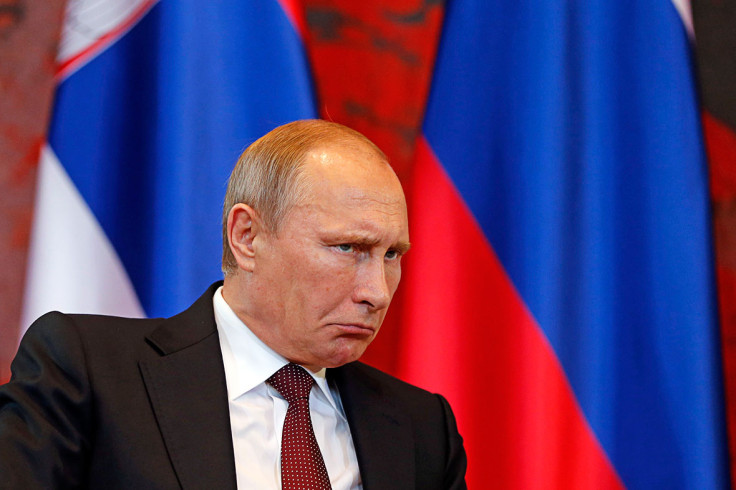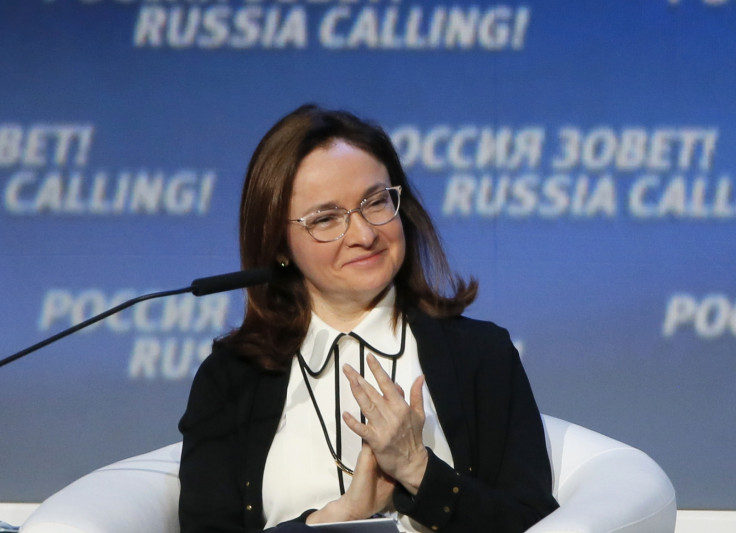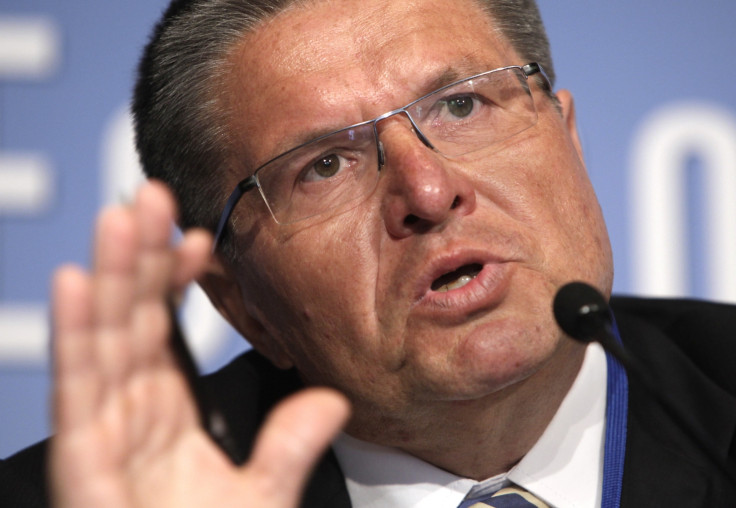Ruble crisis: What Russia needs to do to save its collapsing currency and end the panic

Another day, another plunge in the ruble's value. Despite the central bank hiking its key interest rate to 17%, despite it selling billions of dollars of its foreign exchange reserves, despite tinkering with its funding of Russian banks - the ruble won't stop sliding.
This is pure panic. Investors pull their money out of Russia by the billion each month. Moscow's stock markets are dropping. There's no sign of an end to the tit-for-tat sanctions war with the West over Russia's military incursion into Ukraine. It faces a deep recession in 2015 as oil prices plummet.
It feels like there's nothing Russia can do. The markets have lost their appetite for the ruble and their faith in the central bank's ability to prop it up. What's left of Russia's economic credibility is dissipating right in front of the sunken eyes of President Vladimir Putin's administration.
Already Russians are worrying. Some have gone to the bank to withdraw their rubles and buy dollars, eyeing their currency's meltdown and a 9.1% price inflation rate. Others are spending their money on material goods. Many are blaming the West for what they see as economic war on Russia.
"Russia needs to try to put a floor under the ruble," Dr David Woodruff, a Russia expert at the London School of Economics (LSE), told IBTimes UK.
"I don't know whether it needs to say 'this will be the exchange rate', but it needs to be very clear that people who are buying dollars at today's exchange rate are going to lose a lot of money. And it needs to start doing what it takes to make that happen."
To some extent, the central bank is lying in the bed it made for itself. It has lifted the base rate four times in 2014. But the sharpest and most sudden came overnight. At 1am, in an attempt to assuage the panic, it announced a 6.5% hike in the interest rate to 17% on 16 December.
Though fundamentally a textbook reaction to a plunging currency, the early-hours circumstances smacked of desperation. Woodruff said raising the interest rate was a good idea, but it "should have been managed differently".
"It should have been announced together with, what we call in monetary policy in the West, forward guidance: we will continue to raise the interest rate until the ruble slide has been stopped," he said.
Russian central bankers have also been making bearish comments about the fate of the ruble.

Markets hang on every nuance of monetary policymakers' words. So when Elvira Nabiullina, chair of the Russian central bank, said Russia has to "learn to live in a new reality", it was less than helpful to her current mission of supporting the ruble. In fact, it stoked the panic.
Narrative
Essentially, Russia needs to get a grip of the narrative around the ruble to convince markets that it has hold of the situation. Dimitri Medvedev, the Russian prime minister, has made a start. He asserted the ruble is undervalued and that Russia has enough reserves to counter the current crisis.
"Its course has pulled away from fundamental indexes and does not reflect the state of the economy," he said.
There has also been some suggestion that Russia could resort to the thermonuclear option: capital controls. That could spark an even bigger frenzy as people pulled capital out before the controls came in.
Alexei Ulyukayev, Russia's economic minister, said capital controls weren't at all discussed during an emergency meeting about the ruble. More probably needs to be said, and loudly, to dampen ongoing speculation about capital controls.
What's more, the central bank is increasing the amount of short-term liquidity it offers banks in foreign currencies. Now banks can access a top limit of $5bn (£3.2bn, €4bn) worth of this funding from the central bank every 28 days, up from $1.5bn before.

Less effectively, it has also been selling billions of its foreign currency reserves to help prop up the ruble. This had a short term effect on the market. Within minutes of the latest splurge, a small bounce for the ruble had reversed and it fell further.
And banks are still allowed to offer dollars as collateral to borrow rubles, undermining the Russian currency as the dollar rises sharply against it. Moves to restrict this would also help to support the ruble's value.
"In our assessment, the Russian Central Bank has taken the correct steps to respond to the situation," said Michael Levy, investment manager of the Baring Russia Fund.
"We are particularly encouraged that they continue to follow orthodox policy and have not resorted to capital controls.
"One could argue that they were slow off the mark but while the ruble has continued to weaken in the short term, along with equities and bonds, it is our assessment that the authorities should succeed in introducing greater stability to the market if they continue along this path."
Levy added that while in the short-term there will be some financial pain for Russia, over the longer-term "we continue to expect fundamentals to reassert themselves to drive the equity market higher".
"A weaker exchange rate should help to offset the effect of a lower oil price for Russia, potentially heading towards a balanced budget. The banking sector remains well supported by capital and central bank assistance," he said.
"Russia continues to hold very large reserves of oil and gas, as well as many other resources, representing a store of value which is, in our assessment, currently undervalued."
'Credible signals'
Russia's weakening economic outlook has contributed to the ruble's sudden decline. It is heavily reliant on oil – the petroleum industry accounts for around a quarter of its GDP – so it's being badly hit by the sharp fall in oil prices.
As a result, on top of the impact of Ukraine-linked sanctions, the Russian economy is expected to contract by 4.5% in 2015. But the LSE's Woodruff said it's not the tumbling oil price to blame for the current currency problems.
"What's happening this week is a run on the ruble. And so the oil price is a facilitating condition for this, but it isn't the key thing," he said.
"In general they haven't been willing to allow domestic monetary policy to tighten. A lot of people think that one trigger for this week's panic was the decision last week to allow banks to pledge a new issue of Rosneft bonds as collateral.
"Essentially they were monetising new bond issues by Rosneft, which indicated that their priority is not trying to maintain the exchange rate.
"So they're in a situation of outright panic. Not a slide, but outright panic. And the only way one stops outright panic is by sending very loud, very credible signals that we can and will do what it takes to stop it."
© Copyright IBTimes 2025. All rights reserved.






















